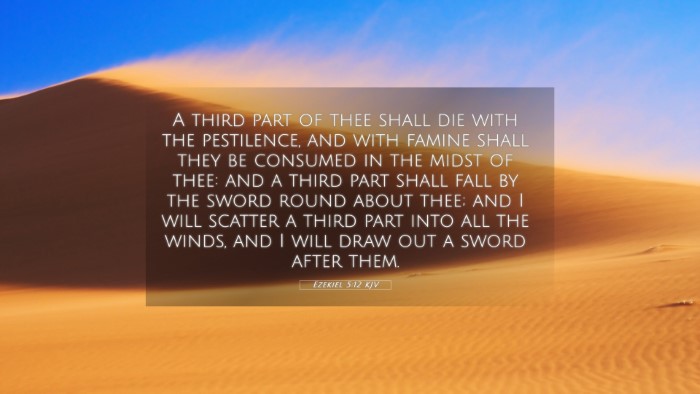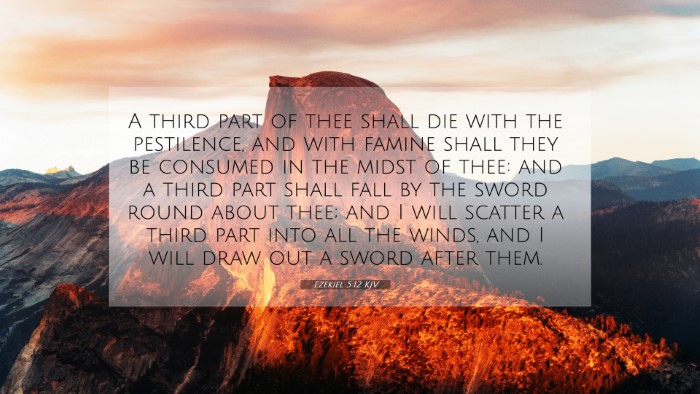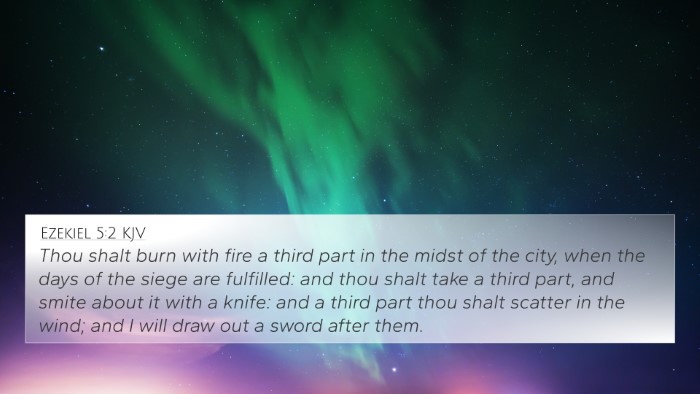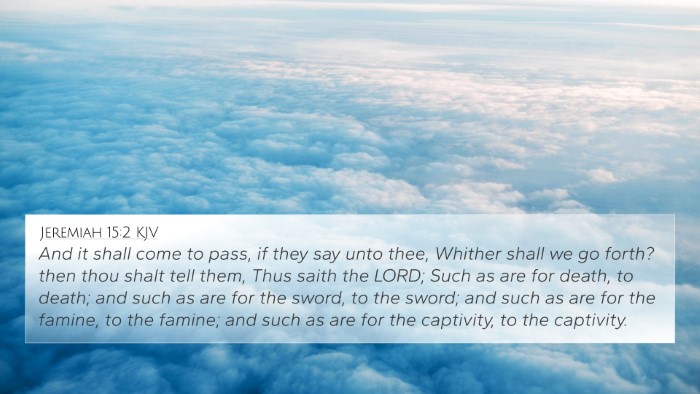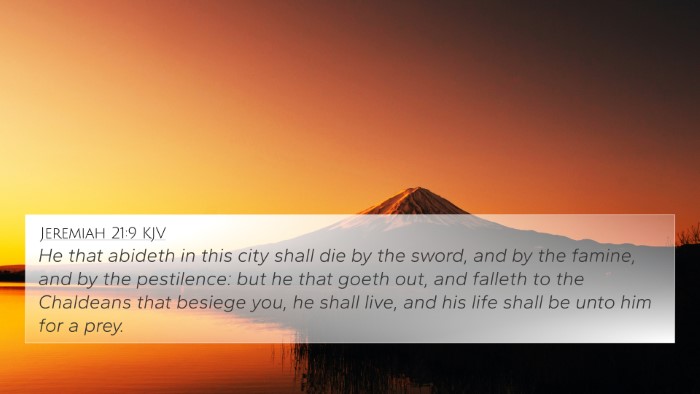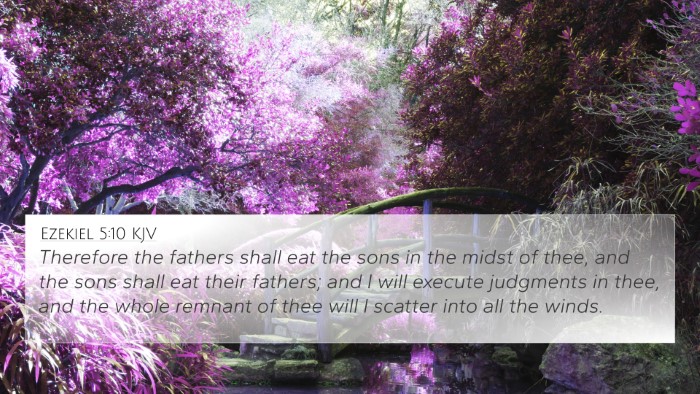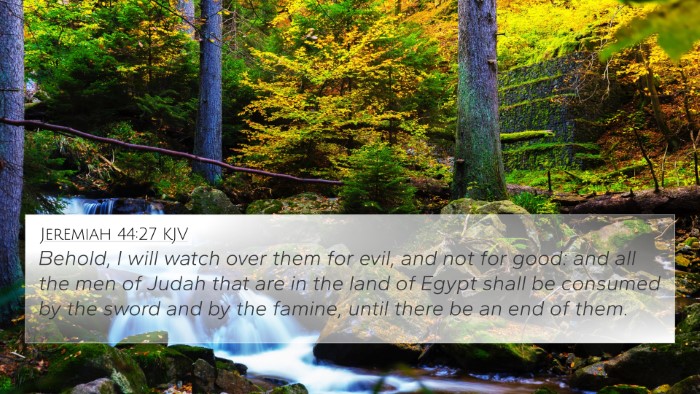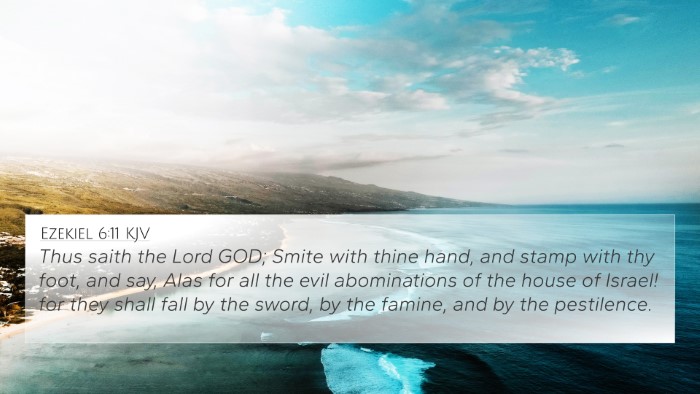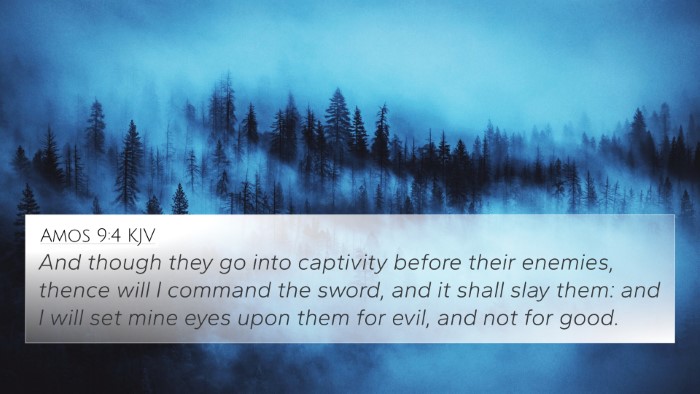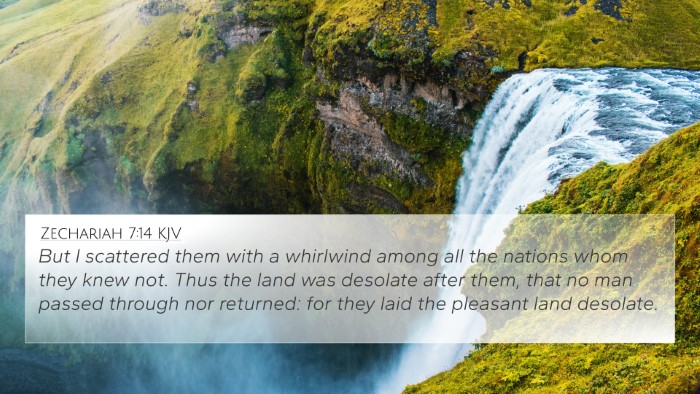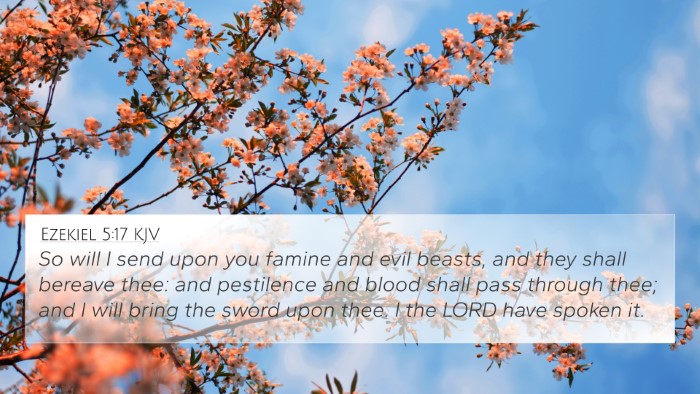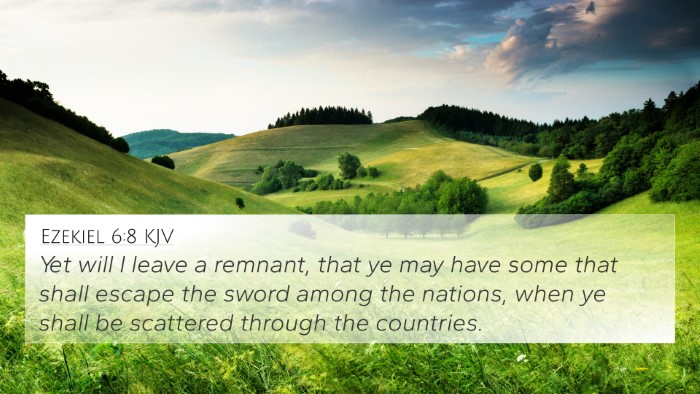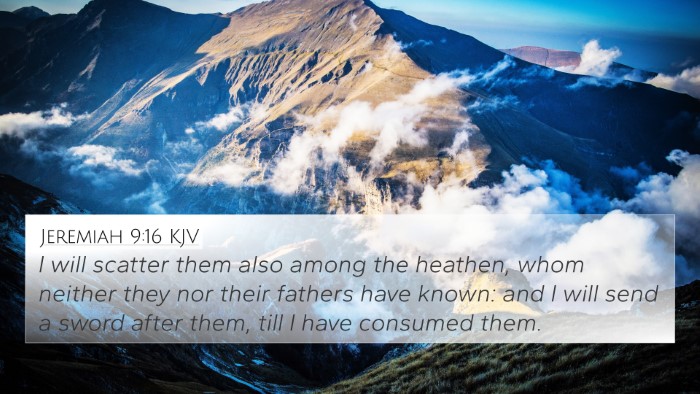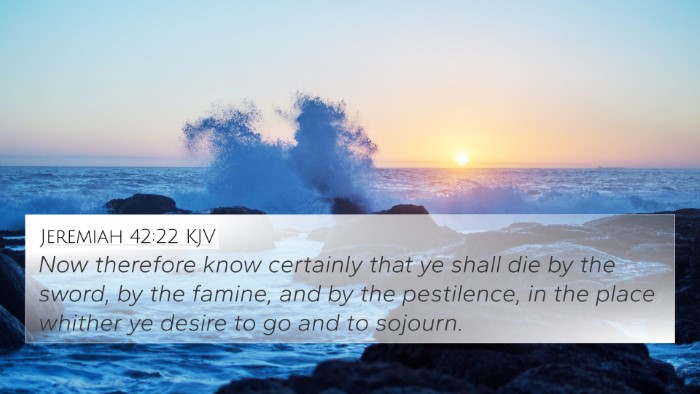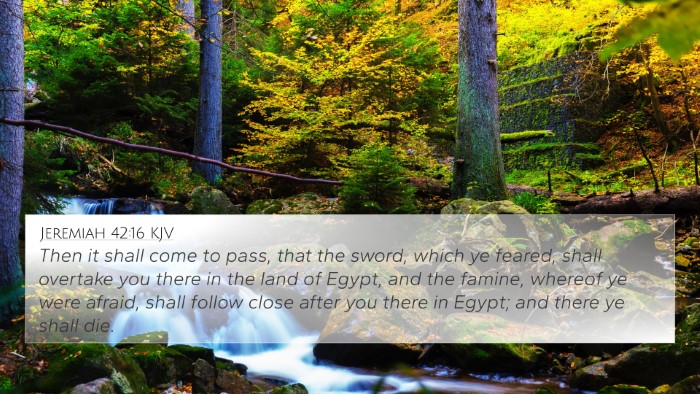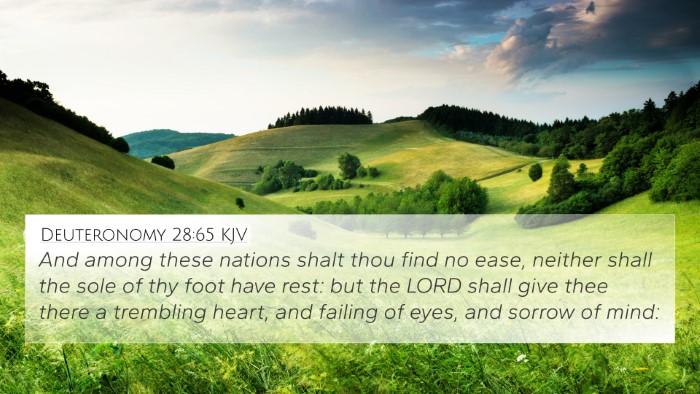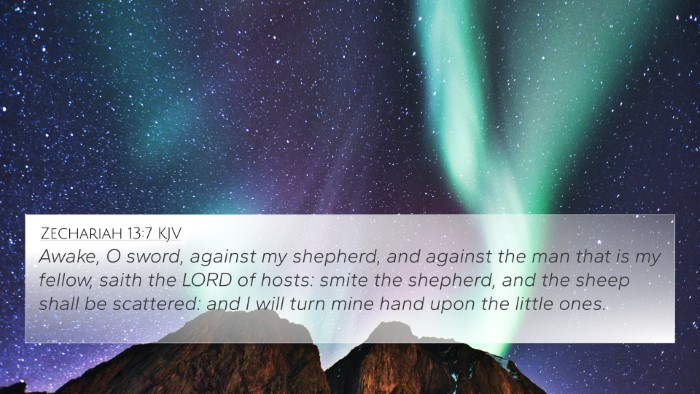Ezekiel 5:12 - Summary and Interpretation
Ezekiel 5:12 states, "A third part of you shall die with the pestilence, and with famine shall they be consumed in the midst of you: and a third part shall fall by the sword round about you; and I will scatter a third part into all the winds, and I will draw out a sword after them."
Context and Overview
This verse is part of a prophetic message delivered by the prophet Ezekiel, addressing the impending judgment of Jerusalem and its inhabitants due to their disobedience to God's commandments. Ezekiel employs vivid imagery to convey the severity of the coming judgment.
Commentary Insights
Matthew Henry's Commentary
Matthew Henry interprets this verse as a dire warning about the consequences of sin. He emphasizes the division of the people into thirds, illustrating that none will escape judgment. He notes that the first third will perish from plague and famine, symbolizing both physical and spiritual starvation. The second third will die by violence, emphasizing that war and conflict will consume them, while the final third will be scattered, implying a total disintegration of community and safety.
Albert Barnes' Notes
Albert Barnes highlights the methodical nature of the judgment described by Ezekiel. He suggests that the numbers do not represent precise statistics but rather serve to underscore the completeness of the punishment. Barnes notes that this passage emphasizes God's sovereign control over life and death, using pestilence, famine, and war as instruments of divine judgment against unfaithfulness.
Adam Clarke's Commentary
Adam Clarke elaborates on the distinction between the various forms of judgment depicted in this verse. He explains that the mention of pestilence, famine, and the sword symbolizes different aspects of God's wrath. Clarke also points out the scattering of the remnant as a form of judgment, indicating that even those who survive will face separation and desolation.
Thematic Connections
Ezekiel 5:12 connects to several other Biblical texts that explore themes of judgment, sin, and divine retribution. Below are notable cross-references:
- Ezekiel 7:1-4 - Describes the end coming upon the land of Israel due to iniquity.
- Ezekiel 12:14 - Illustrates scattering of the people as a result of God’s judgment.
- Lamentations 2:20 - Expresses despair as the lives are lost and God's anger is evident.
- Deuteronomy 28:21-26 - Details curses that will come upon Israel for disobedience, including pestilence and famine.
- Jeremiah 14:12 - Speaks to the outcome of fasting and praying in the midst of famine and pestilence, indicating God’s refusal to hear due to sin.
- Matthew 24:7 - Jesus mentions pestilence and wars in His prophecies about the end times, mirroring Ezekiel’s declarations.
- Revelation 6:8 - A rider of a pale horse brings death, reinforcing ideas of prophesied judgments.
Cross-Referencing Biblical Texts
This verse is a poignant reminder of the seriousness of sin and the certainty of divine judgment. For effective Bible study, utilizing cross-references to explore connections between this text and others enhances understanding. Here are some tools for Bible cross-referencing:
- Bible Concordance: A vital resource for finding occurrences of specific words and themes.
- Bible Cross-Reference Guide: Helps locate related scriptures and their interpretations.
- Tools for Bible Cross-Referencing: Online resources and software that assist in identifying scripture connections.
- Comprehensive Bible Cross-Reference Materials: Publications and studies that compile cross-referencing methodologies.
Significance of Cross-Referencing in Bible Study
Understanding Ezekiel 5:12 in light of its cross-references enriches the study of scripture. It builds a holistic view of the themes present throughout the Bible, illuminating God’s character and His relationship with humanity. The following long-tail keywords provide avenues for further exploration:
- How to find cross-references in the Bible: Exploration into practical methods for identifying key scriptures.
- Identifying connections between Old and New Testament: Encourages comparative studies that reveal continuities and themes.
- Detailed cross-reference between Gospels: Investigating the relationships between narratives and teachings.
- Cross-referenced themes in the Bible: Exploring overarching messages and motifs across scriptures.
User Intent and Engagement
Those studying Ezekiel 5:12 may seek answers to questions such as:
- What verses are related to Ezekiel 5:12?
- Find cross-references for Ezekiel 5:12: Investigating the greater context and connections.
- Similarities between Ezekiel 5:12 and other verses: Analyzing thematic parallels across scripture.
- Bible verses that support Ezekiel 5:12: Looking for additional scriptural backing for its meanings.
Conclusion
The examination of Ezekiel 5:12 through the lens of public domain commentaries reveals an intricate understanding of God’s justice and the dire consequences of turning away from His commandments. By utilizing cross-references and comprehensive Bible reference resources, one can gain a richer insight into not only this verse but the entirety of biblical texts.

